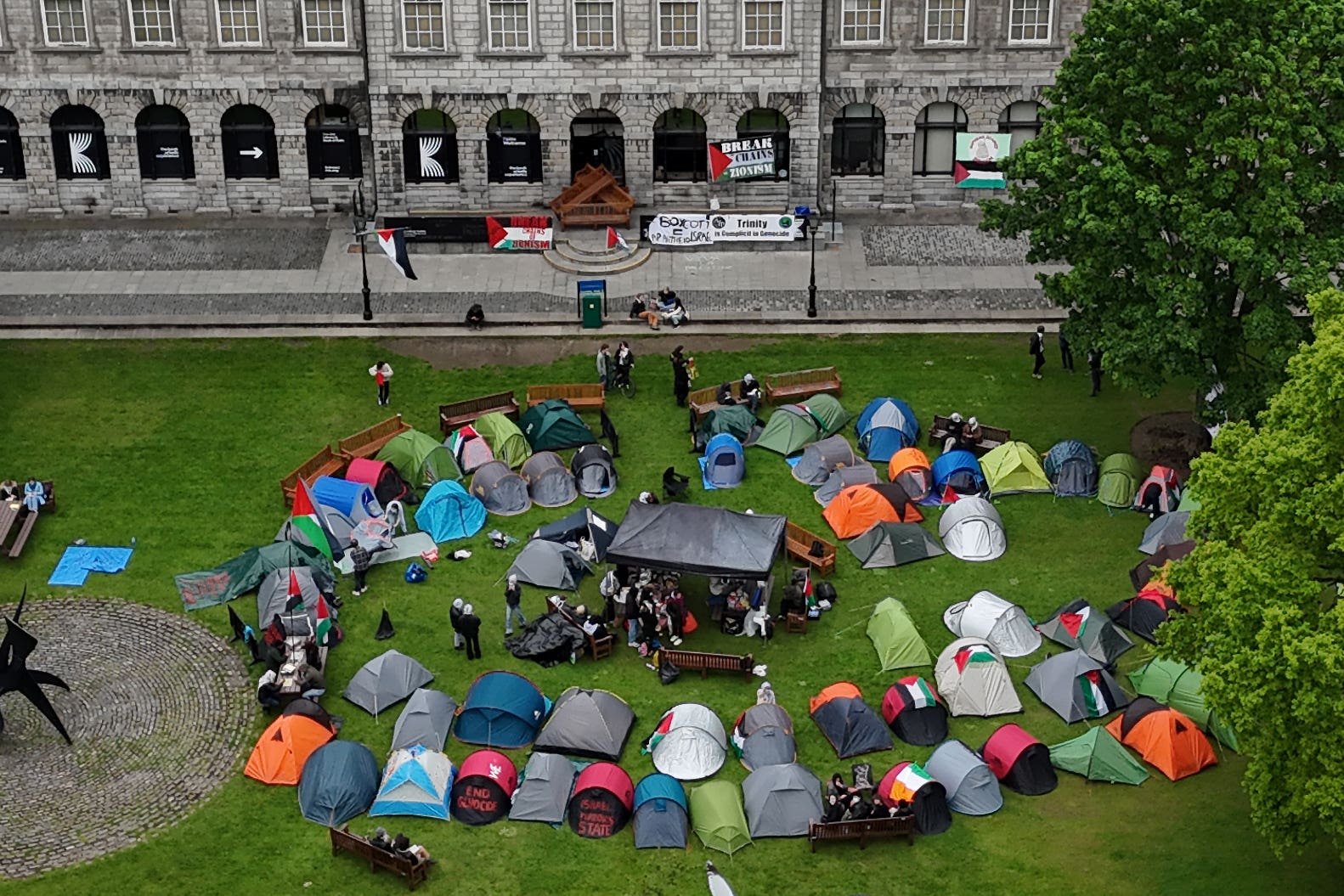Trinity announces steps after talks with pro-Palestinian encampment protesters
Students have been blockading access to the Book of Kells.

Your support helps us to tell the story
From reproductive rights to climate change to Big Tech, The Independent is on the ground when the story is developing. Whether it's investigating the financials of Elon Musk's pro-Trump PAC or producing our latest documentary, 'The A Word', which shines a light on the American women fighting for reproductive rights, we know how important it is to parse out the facts from the messaging.
At such a critical moment in US history, we need reporters on the ground. Your donation allows us to keep sending journalists to speak to both sides of the story.
The Independent is trusted by Americans across the entire political spectrum. And unlike many other quality news outlets, we choose not to lock Americans out of our reporting and analysis with paywalls. We believe quality journalism should be available to everyone, paid for by those who can afford it.
Your support makes all the difference.Trinity College has announced a series of measures in response to concerns raised by students taking part in a pro-Palestinian encampment protest on its grounds.
Visitors have been unable to access the historic Book of Kells since the action began on Friday evening when the activists set up tents inside the campus of the prestigious Dublin university.
The students taking part in the protest have vowed to maintain the blockade until the university cuts all ties with Israel.
University management met with student representatives on Monday to discuss the situation.
Following the meeting, Trinity confirmed it had initiated a process to divest from investments in companies that are active in the Occupied Palestinian Territory as identified on the UN Blacklist. It said this process would be completed by June.
Trinity is also setting up a taskforce to examine its links to Israeli universities and institutions in other states.
The university also made clear it supported the ruling of the International Court of Justice that Israel must take all measures prevent genocidal acts in Gaza.
The college also outlined details of its initiative to support Palestinian scholars taking places on Trinity courses.
Trinity also made clear it was treating the encampment as an internal matter – a statement that appeared to rule out the university calling in gardai.
A further meeting with student representatives is scheduled for Tuesday.
“We wish for a return to normal services for our students, staff, and the public as soon as possible,” Trinity said in a statement.
Outgoing students’ union president Laszlo Molnarfi described the development as a “partial victory”.
He insisted the protest would continue until all their demands are met.
“This proves the power of student and staff protest for Palestine, and this should raise the confidence for other students to push for apartheid free campuses,” he posted on X.
“We’ve witnessed a historic mass movement on the march for seven months, and while our partial victory today is just the first step, it hopefully will be one towards ending Ireland’s complicity in the oppression of Palestinians, bringing them closer to a liberated future.”
The scenes at Trinity follow a wave of similar student protests at university campuses across the US.
The encampment was initiated days after it emerged that the university authorities had fined the students’ union more than 200,000 euro over previous protests on campus.
It invoiced the union for 214,285 euro after a series of demonstrations about fees and rent, as well as pro-Palestinian solidarity protests.
The university cited a loss of revenue due to blockades of the Book of Kells and famous Long Room library among the reasons for the fine.
The protesting students are calling for a “retroactive amnesty” for students involved in protests on campus and the rescinding of the bill imposed on the student’s union.